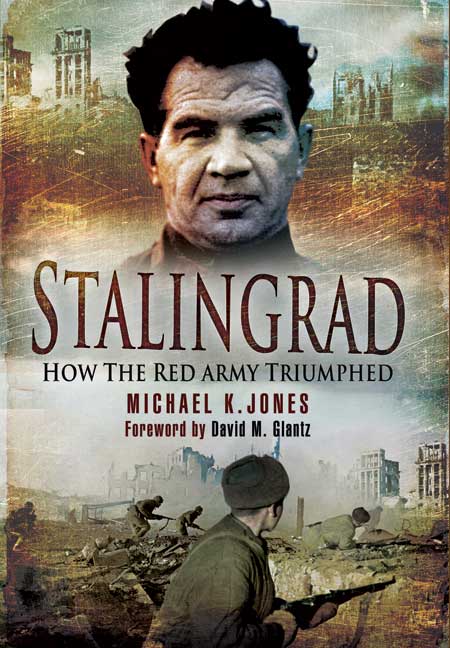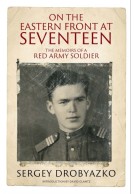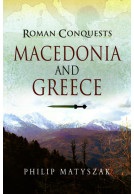Stalingrad (ePub)
How the Red Army Triumphed
Imprint: Pen & Sword Military
File Size: 4.9 MB (.epub)
Pages: 304
Illustrations: 32 black and white
ISBN: 9781848847071
Published: 21st January 2010
Michael K. Jones's new history of Stalingrad offers a radical reinterpretation of the most famous battle of the WW2. Combining eyewitness testimony of Red Army fighters with fresh archive material, the book gives a dramatic insight into the thinking of the Russian command and the mood of the ordinary soldiers.
He focuses on the story of the Russian 62nd Army, which began the campaign in utter demoralisation, yet turned the tables on the powerful German 6th Army. He explains the Red Army's extraordinary performance using battle psychology, emphasising the vital role of leadership, morale and motivation in a triumph that turned the course of the war.
Colonel-General Anatoly Mereshko fought throughout the battle as staff officer to the commander, Chuikov. Working with the author much of Mereshko's testimony is entirely new - and will astonish a western audience. It is backed up by accounts of other key veterans and the recently released war diary and combat journals.
These show that the oft-repeated descriptions of Stalingrad\'s two critical days of fighting - 14 September 1942, when the Germans broke into the city, and 14 October, when they launched a massive attack on the factory district - disguise how desperate the plight of the defenders really was. In their place is a far more terrifying reality. Grasping this, we come to see Stalingrad as more than a victory of successful tactics - rather, as an astounding, improbable triumph of the human spirit.
Of all the books written about Stalingrad, there have not been many like this one. Nor have there been many like this on the Russian Front as a whole, or any other battle, campaign, or theatre of World War II... Stalingrad provides a wealth of thought-provoking material, including new interpretations of many of the generally accepted accounts of the battle... Jones performs an admirable job of analysing the officers and troops of 62nd Army, Chuikov in particular... Recommended.
stone&stone
The battle of Stalingrad was one of the key turning points of the Second World War, and ended as an epic Soviet victory, but during the first part of the battle it was the Germans who looked to be on the verge of winning a crucial victory.
History of War Website April 2010
Jones focuses on this first phase, when the outnumbered Soviet 62nd Army struggled to hold onto a narrow strip of the city on the banks of the Volga. One of his main aims is to strip away the layers of Soviet propaganda, from both during and after the war, that obscured the real events of the battle, instead presenting an ideologically correct view of the fighting.
This has two main effects. Most importantly it becomes clear just how close the Germans came to victory - on at least one occasion the correct use of already available reserves would have been enough, but General Paulus, the German commander, was too methodical and too far from the battle to take advantage of his chances. The second is the dialogue becomes far more convincing - stilted Soviet orthodoxy is replaced by something rather more earthy.
The two commanders emerge as key figures. Vasily Chuikov spent almost the entire battle on the western bank of the Volga, coming under direct fire on numerous occasions. On contrast Paulus spent most of his time well back from the city, and appears to have been a rather distant figure.
Jone's account of the battle reveals that it was much more closely balanced that the official Soviet accounts would suggest. The official view of an inevitable triumph of the Soviet system becomes a much more impressive achievement, won against apparently overwhelming odds. This is a very valuable piece of work that helps to reveal a more accurate view of the fighting on the Eastern Front.
Jones is good at highlighting how impossible it was for post-war Soviet historians to mention any negatives; the artillery's intelligent move to the east bank caused terrible despondency at the time, but was overlooked by Russian history.
Scottish legion news
'He revises the accepted version of the battle in many ways,
Military Illustrated
unpicking the tapestry of events that was carefully constructed in the days of the Soviet Union....It will undoubtedly change the way we think about
Stalingrad.'
About Michael K Jones
Michael K. Jones is well-known for his innovative, controversial studies of warfare. A former university lecturer in medieval history, he now works as a freelance writer, presenter and battlefield tour guide. He has written numerous articles on warfare for journals such as the English Historical Review and War in History. His recent books - Bosworth 1485: Psychology of a Battle and Agincourt 1415 - provide thought-provoking reinterpretations of two of the decisive battles of the Middle Ages. Since 1984 he has been guiding visitors around battlefields, including Stalingrad.
About David M Glantz
A retired US Army colonel, David M. Glantz founded The Journal of Slavic Military Studies in 1988 and edited it for thirty years. He was the first US member of the Russian Academy of Natural Sciences, and was awarded the Society of Military History’s prestigious Samuel Eliot Morrison Prize for his contributions to the study of military history and the Pritzker Military Museum and Library’s 2020 Prize for Lifetime Achievements in Literature for Military History. He has written more than 60 books on the Soviet Army and the Soviet-German War, 1941-1945, including volumes on the Battles for Leningrad, Stalingrad, and Kursk.
















